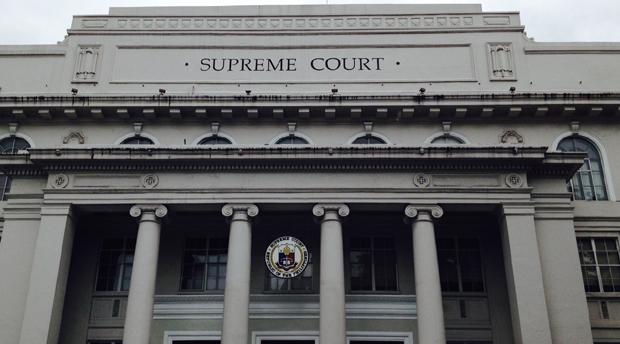Supreme Court: Right to information not absolute
Right to information is not absolute, the Supreme Court said in a decision made public Monday.
In a 13-page decision on the case of Sereno vs Committee on Trade and Related Matters (GR No. 175210), the high court, through Associate Justice Lucas P. Bersamin, said the constitutional guarantee to information “does not open every door to any and all information but is rather confined to public concern.”
“The State’s policy of full public disclosure is restricted to transactions involving public interest, and is tempered by reasonable conditions prescribed by law,” the court said in its ruling denying the petition for certiorari of the Association of Petrochemical Manufacturers of the Philippines, Inc. (APMP).
APMP, through its Executive Director Mario Jose E. Sereno, filed a case before the Pasig City Regional Trial Court Branch 268 to compel the Committee on Tariff and Related Matters (CTRM) to release documents, research data and other papers which were used as basis in issuing Executive Order No. 486 in 2006 that lifted the suspension of the tariff reduction on petrochemical resins and other plastic products under the ASEAN Free Trade Area-Common Effective Preferential Tariff (AFTA-CEPT) Scheme.
The high court said there are two requisites that must be complied with before right to information is granted by mandamus: (1) the information sought must be in relation to matters of public concern or public interest and (2) it must be exempt by law from the operation of the constitutional guarantee.
In the second requisite, citing Chavez vs Public Estates Authority (PEA), the court said the constitutional guarantee of the people’s right to information does not cover national security matters and intelligence information, trade secrets and banking transactions and criminal matters. Equally excluded from coverage of the constitutional guarantee are diplomatic correspondence, closed-door Cabinet meeting and executive session of either house of Congress, as well as the internal deliberations of the Supreme Court.
The court said CTRM has managed to establish that the information sought to be obtained by APMP was classified because it was a closed-door Cabinet meeting.
However, the court noted that the petrochemical industry centers on the manufacture of plastic and other related materials, and provides essential input requirements for the agricultural and industrial sectors of the country. Thus, the position of the petrochemical industry as an essential contributor to the overall growth of our country’s economy easily makes the information sought a matter of public concern or interest.
“In case of conflict, there is a need to strike a balance between the right of the people and the interest of the Government to be protected. Here, the need to ensure the protection of the privilege of non-disclosure is necessary to allow the free exchange of ideas among Government officials as well as to guarantee the well-considered recommendation free from interference of the inquisitive public,” the court said.
The right to information was mentioned by presumptive President Rodrigo Duterte as among his priorities by issuing an executive order in lieu of a law for the Freedom of Information (FOI) bill. The FOI is still pending in Congress. RAM/rga
RELATED STORIES
Duterte vows to implement FOI through executive order
